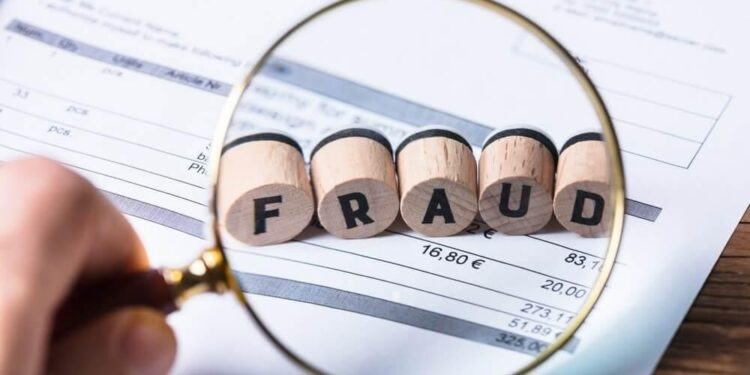Insurance fraud is a broad term used to describe insurance scams in which either party of an insurance contract tries to make an illegal profit at the expense of the other.
Types of Insurance Frauds
By definition, there are two major types of insurance fraud:
- Fraud by the insurer (insurance company or agent)
- Fraud by the policyholder
Insurance fraud by the insurer is less common but still happens. On the other hand, it’s common for policyholders to misuse insurance terms or file false claims to receive more money.
Let’s look at some of the ways both of these frauds occur.
Fraud By The Insurance Company or Agent
Insurance companies and agents have been known to commit fraud against consumers by:
- Collecting premiums for non-existent policies with no intention to pay claims. These companies usually offer low prices to attract customers seeking to save money.
- Resisting claim filing — insurance companies would try to invalidate claims, saying you don’t have necessary documentation or substantial grounds for filing a claim.
- Misrepresentation or non-disclosure of policy terms such as coverage exclusions.
- Failure to notify you that your coverage has been canceled or expired.
- Failure to provide an independent forum for dispute resolution.
If you find yourself a victim of one of these scams, make sure to discuss it with a lawyer. You’ll need to know a lot about the relevant laws, charges, and courtroom proceedings. Even understanding things like character references is a good start – LY Lawyers is a good place to learn more about parts of the overall process.
Fraud By The Policyholder
Regardless of the industry and insurance type, policyholders are involved in insurance frauds more often than insurance companies and agents.
Here are a few common frauds people attempt in different insurance industries.
Homeowners Insurance
Mortgage Loan Scam. This is when a perpetrator attempts to receive a larger sum than would have been loaned if the application were made honestly. This is usually done by lying on mortgage application forms.
Identity Theft. In this scam, an identity thief obtains key pieces of private information, such as social security numbers, birth dates, and driver’s license numbers. He then uses this information to commit insurance fraud.
Fake or Stolen Valuables. When a perpetrator claims high-value items that don’t exist on an insurance claim form.
Storm Swindle. A scam that targets victims whose property was damaged during a storm. Based on anecdotal evidence, storm swindling appears to be more common in states that offer income tax deductions for unreimbursed casualty losses.
Fake Damage. When homeowners file claims for damage that happened or is unrelated to an accident. Insurance companies start looking into fake damage claims when they notice a suspicious pattern of claims in an area.
Punishments for home insurance frauds are severe, and you can read about them here.
Health Insurance
Billing for Services Not Rendered. When a provider bills the insurer for medical services that were not performed.
Upcoding. A scam in which a provider bills services at the highest rate possible to increase reimbursement.
Unnecessary or Unauthorized Services. When unnecessary tests are ordered to boost revenue.
Identity Misrepresentation. When you allow someone else to use your identity information and enjoy health services.
Automotive Insurance
Staging Accidents. When one vehicle hits another, the driver of the “victim” vehicle files an insurance claim saying their car was hit while it was parked.
Swapping Parts. When replacement parts are illegally switched out for substandard or imitation parts after an accident.
Fraudulent Repair. When a repair shop charges an insurer for unnecessary or non-existent repairs.
Odometer Fraud. When someone rolls back their vehicle mileage for a benefit. The most common technique used is called “clocking.”
Tips to Prevent Insurance Fraud
Insurance companies have risk mitigation and fraud detection departments to keep frauds in check. But you don’t, which is why you must stay vigilant. Here is what you should do to avoid being defrauded by insurance companies or agents.
Get multiple quotes from insurers before purchasing a policy. This is your right as a consumer, so take advantage of it. Shop around for the best coverage at the most competitive price.
Do your research and find an authorized insurer that’s registered with the appropriate government department or council. Typically, every state has its own insurance regulatory body.
Do not pay the premium by cash. Always use checks, money orders, or secured online payment gateways. Keep proof of all payments with you.
Keep all receipts and original documentation for major purchases like appliances, expensive gadgets, and cars. This is important in case you need to file a claim down the line.
Never sign blank applications or forms when applying for insurance.









